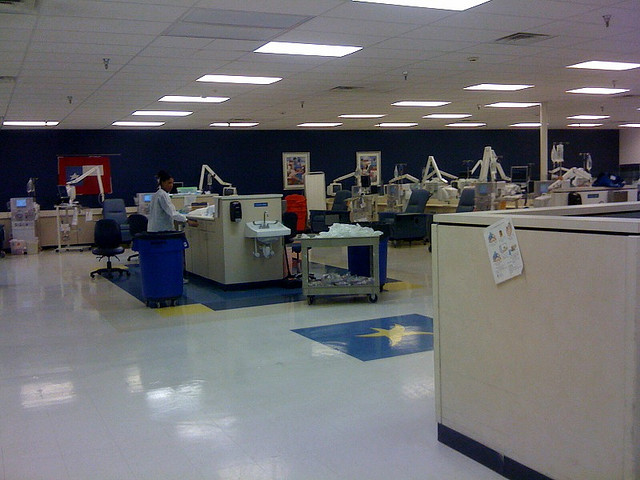Hi everyone,
I have been absent this week because I went back to work as a renal social worker…just for the week.
Covering vacations is always a challenge but it also gives me a chance to help out and work together with a great group of colleagues.
Dialysis patients are a very special group. One of their major needs is to have someone just listen to them. Listening is really an art and to be honest I enjoy it and I am good at it.
Someone, who has a chronic illness,I have learned, feels like they are carrying around a 50 pound suitcase all the time.
Kidney failure demands a lifestyle change… three times a week a person in kidney failure must sit in a chair connected to machine for 3 – 4 hours while their blood goes through a machine to be cleansed of all impurities that their kidneys used to remove without them even thinking about it.
Now, without dialysis they will die.
I am always amazed at how different people handle this type of a diagnosis. Initially, there is a period of disbelief that their kidneys have failed…there is also a period of accepting the fact that dialysis will be necessary for the rest of their lives or until they have a transplant.
This news is usually devastating for the End Stage Renal Disease (ESRD) patients and their families.
Kidney failure knows no age boundaries.
I have seen a young woman in acute renal failure due to taking massive doses of ibuprofen prior to her realizing she was pregnant. Her kidneys completely shut down …fortunately her kidney function slowly returned and she delivered a healthy baby.
We have children on dialysis too. For various reasons, kidney failure also affects babies and until they can receive a transplanted kidney they have to have dialysis treatments as well.
After this week…I am experiencing “compassion fatigue”.
When I returned to the dialysis center…some of the people with whom I had a relationship were dead…a few of them were old and their bodies weary from illness but a few were young, one was a mother of a teenager.
My heart ached for them and their families. The chairs where they sat have new dialysis patients sitting in them as the cycle of life goes on in the dialysis center.
On the upside…one of my patients, whose transplanted kidney failed, received a new kidney. He is a young dad, whose wife died a couple of years ago from complications of kidney failure.
I love my work…and am happy to help, but this Friday I am grateful to come home to my family and grandchild.
I look forward to this weekend and am thankful to get back to my regularly scheduled programming
